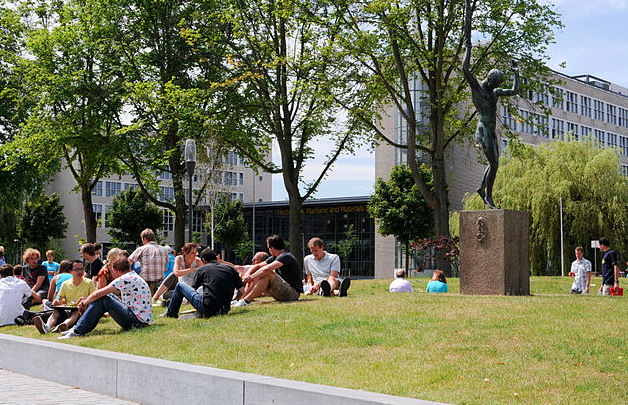Maastricht, Twente universities may face court for having ‘too many English courses’


A lobby group campaigning for better education in the Netherlands is taking Maastricht and Twente universities to court for offering too many degree courses in English.
The Beter Onderwijs Nederland association says the two universities are breaking the law because they are offering English language courses without good reason to do so.
The schools inspectorate are also being taken to court by BON for failing to take action against the two universities.
‘The law states explicitly that educational establishments should promote Dutch language skills,’ chairman Ad Verbrugge told the Volkskrant. ‘Students should learn to express themselves as precisely as possible in Dutch. This is an essential part of academic learning.’
BON has singled out Maastricht and Twente because they have gone ‘much too far’ in introducing English, Verbrugge said.
The use of English in Dutch higher education has become a political hot potato and education minister Ingrid van Engelshoven has promised to publish her vision in June.
In a joint paper published on Monday, the Netherlands’ higher education institutions said the number of courses given in English should be capped in an attempt to contain the growing number of international students.
An upper limit would allow the sector to ensure universities remained accessible to Dutch students, the VNSU said.
Fees
The institutions also said that matriculation and course fees for students from outside the European Union should be raised. Students from EU countries have the right to pay the equivalent fees to their Dutch counterparts, currently around €2,000.
In August 2016, the Volkskrant reported that 60% of the 1,632 different degree courses at the country’s 13 universities are now in English. When it comes to master’s degrees, just 30% are taught in Dutch and three universities only offer master’s degrees in English.
Some 75,000 foreign students are currently studying at Dutch universities and hbo colleges, accounting for around 10% of the total student body. Students from Germany, China, Indonesia, Poland and Belgium are most likely to stay in the Netherlands to work after they graduate.
Thank you for donating to DutchNews.nl.
We could not provide the Dutch News service, and keep it free of charge, without the generous support of our readers. Your donations allow us to report on issues you tell us matter, and provide you with a summary of the most important Dutch news each day.
Make a donation